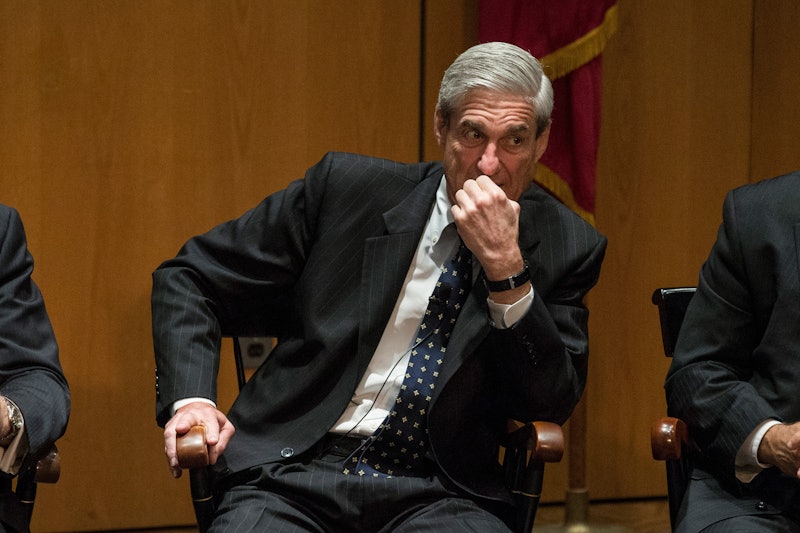News
There's A Rumor In Congress That Trump Will Fire Robert Mueller Before Christmas

In an interview on San Francisco Bay Area PBS affiliate KQED on Friday, Democratic Rep. Jackie Speier dished out a rumor about the investigation of independent counsel Robert Mueller that she said is going around Capitol Hill. A rumor which would, if it were proven true, send shock-waves through the political system. Namely, Speier said there's a rumor Trump will fire Mueller before Christmas, stymieing his months-long probe in the process.
Of course, this is by no means confirmed or corroborated, and is merely being floated by a member of Congress as a rumor she's heard kicking around the nation's capital. But with the Mueller investigation seemingly picking up steam in recent weeks ― in particular thanks to the apparent cooperation of former national security adviser Mike Flynn, who has pleaded guilty to lying to the FBI ― it's easy to see why the possibility of Trump pulling the plug would be getting discussed in the halls of power.
Speaking to KQED Newsroom's Thuy Vu, Speier said the rumor is that Trump will fire Mueller just prior to Christmas, waiting until members of Congress have left Washington, D.C. for the holiday.
The rumor on the Hill when I left yesterday was that the president was going to make a significant speech at the end of next week. And on Dec. 22nd, when we are out of D.C., he was going to fire Robert Mueller.
Back in October, White House Press Secretary Sarah Huckabee Sanders claimed there were no plans to fire Mueller. On Saturday, one day after Speier floated this rumor, White House counsel Ty Cobb reiterated the claim that there is no plan to fire Mueller. "As the White House has consistently said for months, there is no consideration of firing the Special Counsel," Cobb said.
Speier said such an action would be a "Saturday massacre 2.0," a reference to when former president Richard Nixon forced the resignations of attorney general Elliot Richardson and deputy attorney general William Ruckelshaus in 1973 thanks to their refusals to fire Watergate special prosecutor Archibald Cox.
In recent weeks, Republican elected officials have begun attacking the Mueller investigation with increased fervency, alleging political bias on the part of of some members of Mueller's team. The new tone is a sharp departure from how Mueller was celebrated when his role as independent counsel was first announced ― back in May, his selection was lauded, with elected officials on both sides of the aisle praising his independence and integrity.
For a particularly vivid example of how the tides have turned, former Speaker of the House Newt Gingrich lauded Mueller in May as a "superb choice" to lead the investigation, praising his "honesty and integrity." This month, however, as the Mueller investigation has appeared to intensify in scope and severity, Gingrich went on Fox News to claim Mueller is "corrupt."
This isn't the only suggestion this week that Trump might be considering a hyper-controversial course of action to thwart the Mueller probe. He also told the press earlier this week that he "didn't want to talk about a pardon for Michael Flynn yet," which could indicate he's at the very least been considering it.
It's unclear how the political system would react to a Mueller firing. After Nixon's firing of the Watergate special prosecutor, likely the closest historical analogue, he was facing impeachment and ultimately resigned less than one year later. In the current hyper-polarized political climate, however, and with elected Republican officials openly attacking and scrutinizing Mueller, it's highly unclear if the response to his potential firing would break down in any way beyond partisan lines.